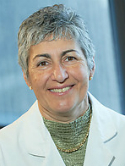Locoregional recurrence after mastectomy: Incidence and outcomes Journal Article
| Authors: | Buchanan, C. L.; Dorn, P. L.; Fey, J.; Giron, G.; Naik, A.; Mendez, J.; Murphy, C.; Sclafani, L. M. |
| Article Title: | Locoregional recurrence after mastectomy: Incidence and outcomes |
| Abstract: | Background: Locoregional recurrences (LRR) after mastectomy may be ominous events, but incidence and outcomes data are limited by heterogenous study populations and the time period studied. We sought to evaluate the rate of LRR at a single institution in the era of multimodality therapy, identify predictors for isolated LRR, and examine treatment strategies and outcomes of postmastectomy patients with isolated LRR. Study Design: In a prospective database, we identified 1,057 patients who underwent mastectomy for invasive cancer at Memorial Sloan-Kettering Cancer Center from 1995 to 1999. Predictive factors for isolated LRR were determined by univariate and multivariate analyses. Treatments and outcomes of patients with isolated LRR were reviewed. All patients with at least 2 years of followup were included. Median followup was 6 years. Results: Overall, LRR developed in 93 of 1,057 (8.8%) patients. Thirty-four (3.2%) had synchronous distant metastases. Distant recurrences developed in thirty-one (2.9%) during the followup period (median followup, 6 years). Twenty-eight patients with LRR (2.6%) remained free of distant disease during the study period. Multivariate analysis showed age less than 35 years, lymphovascular invasion, and multicentricity as major predictors for isolated LRR. In the 28 patients with isolated LRR, 24 had recurrence in the chest wall, 2 in the axilla, and 2 in more than 1 local site. Seventy-eight percent (22 of 28) of patients were rendered disease free with surgery (15 of 22), radiotherapy (13 of 22), chemotherapy (6 of 22), or hormones (9 of 22). Conclusions: Despite widespread use of adjuvant therapies during the study period, we found an LRR rate after mastectomy of 9%. But for patients presenting with LRR without evidence of distant disease, aggressive multimodality therapy is warranted because many of these patients can be rendered disease free. © 2006 American College of Surgeons. |
| Keywords: | adult; human tissue; treatment outcome; aged; aged, 80 and over; middle aged; retrospective studies; major clinical study; clinical trial; cancer localization; cancer recurrence; chemotherapy, adjuvant; radiotherapy, adjuvant; follow up; lymphatic metastasis; prospective study; neoplasm recurrence, local; mastectomy; incidence; breast neoplasms; thoracic neoplasms; cancer invasion; lymph vessel; tamoxifen; multivariate analysis; axilla; univariate analysis; thorax wall; raloxifene |
| Journal Title: | Journal of the American College of Surgeons |
| Volume: | 203 |
| Issue: | 4 |
| ISSN: | 1072-7515 |
| Publisher: | Elsevier Science, Inc. |
| Date Published: | 2006-10-01 |
| Start Page: | 469 |
| End Page: | 474 |
| Language: | English |
| DOI: | 10.1016/j.jamcollsurg.2006.06.015 |
| PUBMED: | 17000389 |
| PROVIDER: | scopus |
| DOI/URL: | |
| Notes: | --- - "Cited By (since 1996): 33" - "Export Date: 4 June 2012" - "CODEN: JACSE" - "Source: Scopus" |
Altmetric
Citation Impact
BMJ Impact Analytics
Related MSK Work




